The 2019 Global Leadership Practice intensive course, arranged for the second time this year in partnership with Georgia Institute of Technology (Georgia Tech), was held from June 4 to 14 on Ookayama Campus. Ten students from Japan, Italy, Ukraine, and Tunisia gathered for the two-week course to develop their leadership skills, focusing on self-evaluation, case studies, organization observation and analysis, site visits, and a final team project.
intensive course, arranged for the second time this year in partnership with Georgia Institute of Technology (Georgia Tech), was held from June 4 to 14 on Ookayama Campus. Ten students from Japan, Italy, Ukraine, and Tunisia gathered for the two-week course to develop their leadership skills, focusing on self-evaluation, case studies, organization observation and analysis, site visits, and a final team project.
Global Leadership Practice is one of the core subjects under the Global Awareness and Other Breadth Courses for students in the Advanced Global Scientists and Engineers Course (GSEC) . GSEC was established in 2013 to provide students with the skills and expertise necessary to become globally competitive scientists and engineers. As of July 2019, 2,088 students had registered for the course, 47 of whom were in the advanced course.
. GSEC was established in 2013 to provide students with the skills and expertise necessary to become globally competitive scientists and engineers. As of July 2019, 2,088 students had registered for the course, 47 of whom were in the advanced course.
Participants from diverse backgrounds
Joining the diverse group of students in the course were two teaching assistants (TAs) from Brazil and Indonesia, a lecturer and TA from Georgia Tech in the United States, and a guest speaker from Vietnam. Participating Japanese students, many of whom had already experienced overseas study, participated in the leadership program at Georgia Tech in March 2019, or were planning to study abroad in the near future, were eager to interact with their international counterparts and mentors.
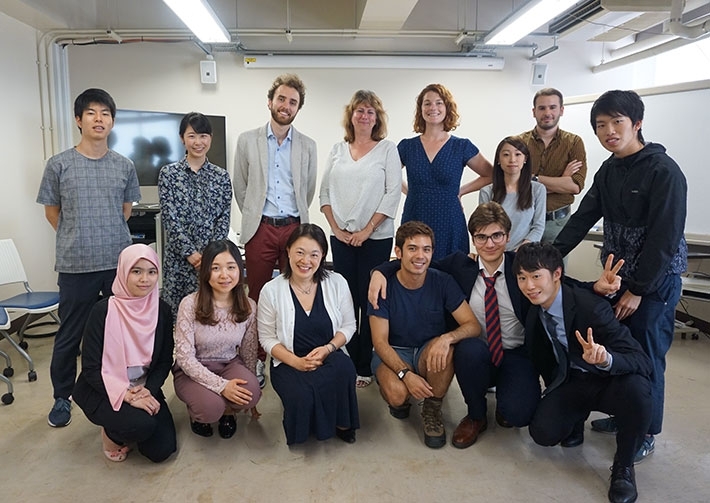
Diverse group of participants
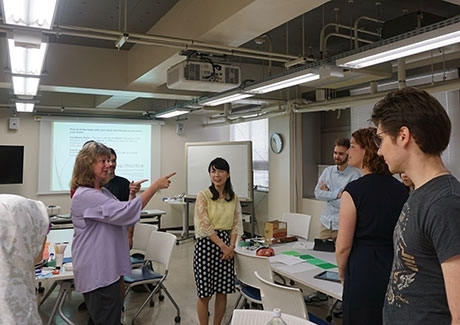
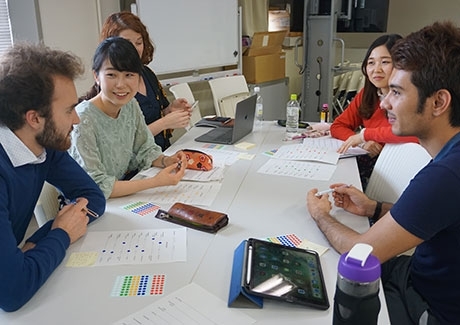
Snapshots of classroom activities
Sessions focused on active learning
Developed based on the leadership program at Georgia Tech and held in partnership with Georgia Tech for the second time, this year's course content reflected feedback from last year's participants. Before implementation, instructors from the two institutions planned and discussed the contents and pedagogy. In the US, a significant amount of tasks are assigned to students before and after each class, where active participation is expected. Students are asked to read a textbook on leadership, and to write blog articles based on personal leadership experiences. These practices were also adopted at Tokyo Tech.
Students were requested to attend an orientation session beforehand, where they received the course manual. This manual covered the main points of each lecture and assignment during the course, and proved especially helpful for Japanese students during group work and discussions with international students. While the use of English and active learning style throughout the course challenged some students, the friendly atmosphere of the class and instructors resulted in active commitment from all the students.
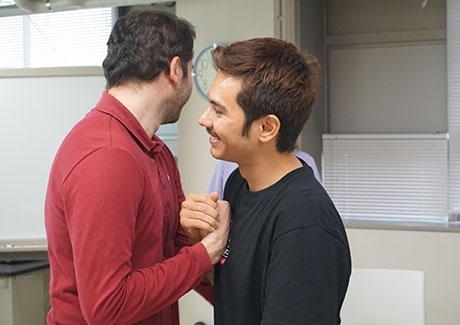
Presenting formal and informal greeting styles
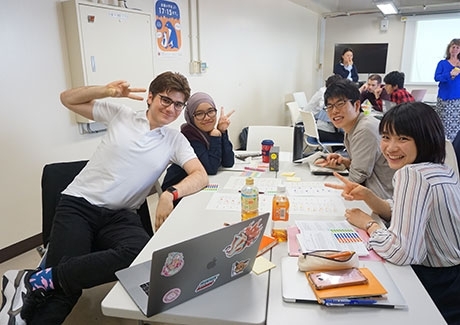
Discussing cultural differences
Learning in multicultural teams
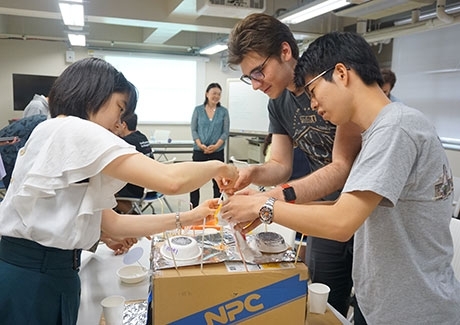
Home for homeless people: Adaptable for any natural disasters
In order to develop leadership skills actively, the first session — entitled Family Tree — focused on determining students' own strengths, values, and capabilities. In the second session, students learned how collaboration with team members can help extract these strengths from each member while transforming one's own values and goals into reality. Students also learned how to adjust issues and develop problem-solving skills in a multicultural environment. Specifically, they were asked to develop some new equipment or facility in a short period of time with only the materials provided to them. Through this, students learned how to build teamwork and leadership skills in order to realize a common goal within their group.
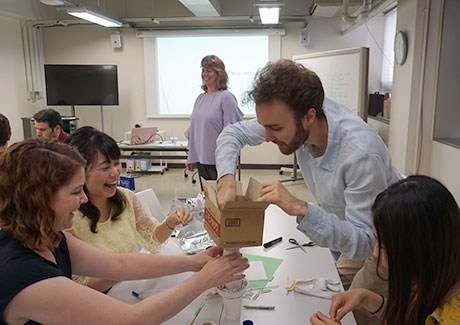
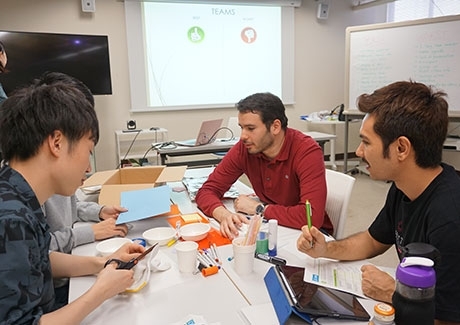
Making device to purify water
Students also learned about different kinds of leadership style in different countries —including the concepts of egalitarian and hierarchical styles — while taking into consideration different histories, cultures, and customs. Students shared various types of leadership styles based on their experiences. It was understood from this session that decision-making styles differ from country to country. Students learned specific characteristics of each of these styles along with ways to deal with unconscious biases.
Study of multicultural team building continued in the next session, which was led by Dr. Minh Nguyen, a Tokyo Tech alumni currently working for Google Japan Inc. After listening to Minh's lectures and experiences in both Japanese and multinational companies, students reflected on how to turn their ideas and goals into reality in terms of their own career development.
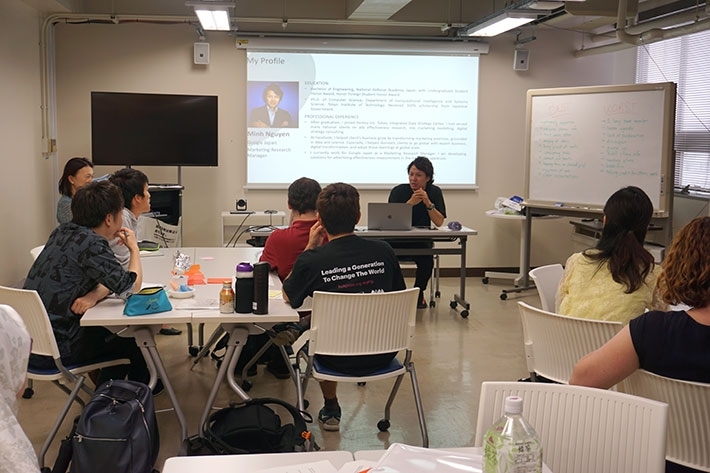
Dr. Minh Nguyen from Google Japan
Final presentation session
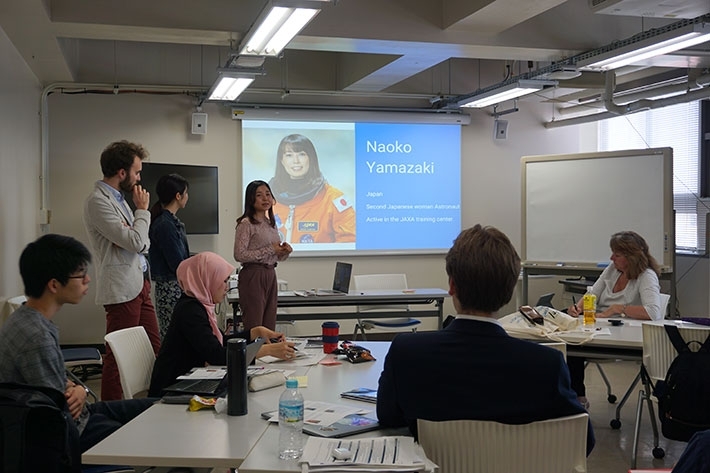
Final presentation session
On the last day of the course, the three student groups presented their comparative analyses of two different leaders. Students spoke about the societal influence and leadership qualities of Softbank Corp. CEO Masayoshi Son, Italian physicist Fabiola Gianotti, Japanese astronaut Naoko Yamazaki, University of Toronto psychologist Jordan Peterson, and Tunisian entrepreneur and human rights activist Amira Yahyaoui. After the presentations, students discussed how they could apply their newly acquired knowledge on leadership to their own paths. Overall, the intensive course stimulated students through a mix of lectures and active learning, challenging them to step out of their comfort zone.
The next two-week leadership program within GSEC is planned for March 2020 at Georgia Tech.
. Any information published on this site will be valid in relation to Science Tokyo.












